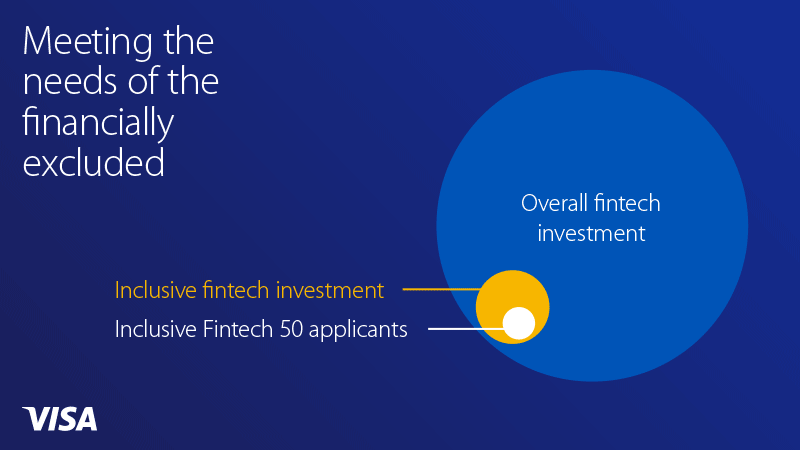Finding — and funding — fintechs who serve the financially underserved
Inclusive FinTech 50 competition winner Chandni Mehta from Happy wants to bring millions into formal banking

More than 90 percent of worldwide venture capital funding goes to startups with one or more North American or European founder [1], yet nearly 1.7 billion people remain excluded from basic financial services [2].
This disparity is one reasons the Inclusive Fintech 50 competition was created: to recognize promising startups that have not yet received due attention for bringing innovation to financially-underserved communities. Co-designed and jointly funded with Visa, MetLife Foundation, the World Bank Group, Accion, and MIX, the competition highlights new fintechs for investors and others who can help them scale and reach more underserved people.
Winners were announced last June and included Happy, an India-based startup that provides small loans to micro-, small- and medium-sized enterprises (MSMEs) throughout the subcontinent. Visa spoke with Chandni Mehta, Happy’s Head of Marketing, about the opportunity to expand access to banking across India.
Why is your firm targeting an underserved market? What is the opportunity?
The MSME segment in India faces an estimated credit shortage of more than $230 billion (USD). And yet, micro-enterprises contribute 37.5 percent to India’s economy and employ 20 percent of the country’s workforce. That’s more than 100 million people. We see an enormous business and impact opportunity in powering small, flexible loans to stabilize cash-flows, and enhance livelihoods for small business owners and their employees. Providing one million small loans will mean building a loan portfolio of over $100 million and catalyzing as much as $10 billion for micro-and small enterprises in a single year.
How did you and your team identify this gap? What have you learned about your prospective customers?
Collectively, our founding team has more than 60 years of experience serving the financial needs of micro-enterprises and low-income segments globally. In addition to bringing millions into the formal banking system with new accounts, payments and credit, they’ve also seen the potential in digitizing this process -- particularly credit -- to maximize impact. Our team has undertaken primary and secondary research to understand how micro-entrepreneurs would use small digital loans and how best to design the delivery.
What is the biggest challenge when it comes to finding investors or partners?
The biggest challenge has been withstanding the last six months of a tight credit market in India. After disbursing an all-time high of more than 3,000 loans across India in October 2018, portfolio growth slowed to a standstill. However, the inherent scalability of our model has recently unlocked more than $25 million in new capital commitments and upcoming lines of credit as high as $100 million. After having withstood cash constraints for several months, we expect to resume and outpace initial projections for FY 2020.
Do inclusive fintechs have different challenges than fintechs focused on more affluent areas and markets? If so, what are they?
Inclusive fintechs have several challenges, which include origination, authentication and underwriting risk.
Origination — with the smaller formal and digital footprint of target clients, it is expensive to acquire customers. Our model solves this challenge by integrating with payment processors and other merchant aggregators who give us access to millions of potential borrowers at virtually zero cost.
Authentication — the lack of verifiable or authentic know your customer (KYC) documents is a challenge globally. At Happy, our origination partners have already done this validation, which reduces our risk.
Underwriting risk — a lack of client data on most inclusion-focused fintechs from credit bureaus means limited ability to assess creditworthiness. Happy’s model gives us access to verified alternate data (sales histories, etc.) from merchant aggregators, payment processors, etc., enabling real-time credit underwriting.
Learn more about Happy and the Inclusive FinTech 50 competition.
For more information on these insights, read the latest white paper, which launched on September 10th.
___________________________________________
[1] BREAKING THE PATTERN: Getting Digital Financial Services Entrepreneurs to Scale in India and East Africa, Village Capital
[2] Demirgüç-Kunt, Asli, Leora Klapper, Dorothe Singer, Saniya Ansar, and Jake Hess. 2018. The Global Findex Database 2017: Measuring Financial Inclusion and the Fintech Revolution. Washington, DC: World Bank. doi:10.1596/978-1-4648-1259-0. License: Creative Commons Attribution CC BY 3.0 IGO